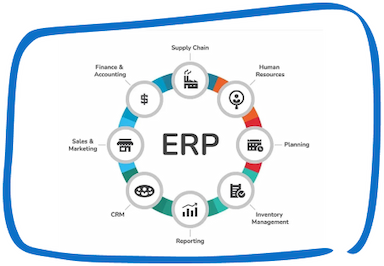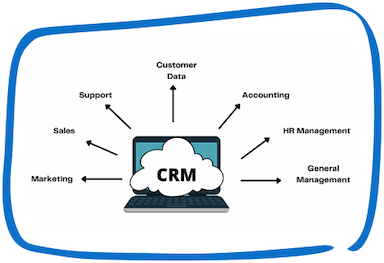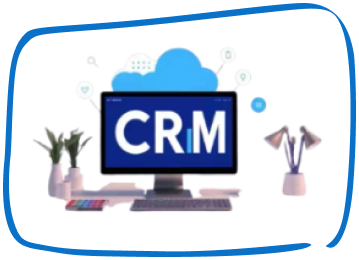Cloud ERP is a solution that’s designed to help companies manage their sales, marketing, and customer service processes while also providing them with the technology they need to lead their businesses. Cloud ERP combines both cloud computing and an enterprise resource planning (ERP) solution to provide a one-stop shop for managing all aspects of your business. Lets check Cloud ERP and Cyber Security.
What is Cloud ERP?
Cloud ERP is a business management system that is hosted on the cloud. It’s a web-based application that can be accessed from any device with an internet connection, including smartphones and tablets.
Cloud ERP allows businesses to save money by not having to purchase and maintain their own hardware and software. Instead of paying for servers, backup systems, security measures, and more—all of which add up quickly—your company will only pay for what you need as long as there are users accessing the system at all times (with unlimited access).
What is cybersecurity?
Cybersecurity is the practice of protecting information and systems from unauthorized access, use, or disruption. It encompasses a wide range of issues that include:
- The prevention of data loss or theft
- The detection and reporting of security incidents
Cybersecurity is an important part of every business’s overall IT strategy because it can help organizations detect potential attacks in real-time and respond appropriately before any damage occurs.
Cloud ERP Security
Cloud ERP security is a concern for many organizations moving to the cloud. The reason for this is that there are inherent differences between on-premise and cloud-based ERP systems, both in terms of how they work and how they’re secured.
In order to understand those differences, it’s important to know what an ERP system does: it acts as a central repository for business information like customers’ names and addresses; products sold by these customers (e.g. widgets); orders placed by employees at different points during their workflow; invoices generated during this process; etc.; as well as other types of data such as financials (such as sales data) and operational reports such as profit margins per quarter or total sales volume over a time period(s).
Cloud ERP and cybercrime
Cybercrime is a major concern for all businesses, and it is becoming more sophisticated and dangerous by the day. Businesses often have choices like buying cybersecurity measures or risk losing revenue because of a breach of their system. Cloud ERP can help to mitigate this risk by making it easier to secure an organization’s data from outside sources like hackers or phishing attacks.
Cloud ERP allows you to store your data in secure servers that are located at trusted servers around the world (known as data centers).
The benefits of cloud ERP
Cloud ERP is a flexible and cost-effective solution that can be accessed from anywhere. It’s easy to use, secure, has regular patches and updates, and is integrated with other systems such as accounting software or CRM.
The cloud presents some security challenges and opportunities for ERP systems.
The cloud presents some security challenges and opportunities for ERP systems. While the cloud is not a panacea, it can be an effective solution for many organizations that require fast access to data, simplified deployment procedures, and reduced overhead costs. However, the cloud has its own set of risks and vulnerabilities that need to be in consideration when planning your next ERP system deployment.
The cloud offers regular patches and updates.
In an on-premise, ERP, patches, and updates is a rare occurrence. With cloud-based, however, these issues aren’t common because there’s always someone watching over your data: Amazon Web Services’ S3 storage service stores all of your data safely without being vulnerable to attacks from outside sources like hackers who might want access just so they can pull off their next big heist!
Data protection with encryption.
Encryption is a process that transforms readable information into an unreadable form. It can be in use to protect data in transit, at rest, and in storage. The encryption keys are in store securely on the server.
Your cloud provider has dedicated security experts on staff.
Cloud providers have a vested interest in making sure their customers’ data remains safe and secure because when you don’t know who has access to what information about you on the cloud platform, it can be difficult for businesses using cloud software as well as consumers want more control over their own personal information.
You can always stay in control of access and authorization.
With the cloud, you can always stay in control of access and authorization. In a traditional on-premise ERP system, you need to rely on IT staff or consultants to make sure that only authorized users have access to your data. With the cloud, however:
- You can control who has access to your data at any given time.
- You can easily revoke access at any time by simply canceling the user account from our platform entirely.
A cloud ERP, you don’t need to worry about hardware and software maintenance, or upgrades.
With cloud ERP, you don’t need to worry about hardware and software maintenance, or upgrades. You can avoid the cost of maintaining servers and storage and all the associated headaches that come with it. With a cloud ERP solution, your IT team can focus on helping you grow your business. Instead of dealing with technical issues.
Cloud-based ERP is a secure choice.
With cloud ERP, however, there are no physical servers that involve in the software running in the cloud. Therefore, there is no remote access without authentication. The data aren’t really up-to-date anymore but still contain useful information about how things work here.
Moving to an ERP in the cloud? Learn how to keep data safe.
- Encryption keys
- Encryption key management
- Encryption key backup and recovery (e.g. cloud-based backups)
- Data security controls (e.g. encryption)
- Data privacy controls (e.g. data masking)
- Compliance with regulatory requirements
Encryption is the most important part of securing your cloud ERP system. Encryption protects data from access or modifications by external users, and it prevents hackers from accessing sensitive information. Access control is another important security measure that you should take when using any software application in the cloud.
Security and compliance are often the biggest concerns for organizations.
A cloud is a secure option for your business. You can help comply with regulations and meet compliance requirements. Although, it’s important to know what those regulations are before starting the process of adopting an ERP system. The most common risks associated with data security include:
- Data breaches
- Malware attacks on networks and applications (including ransomware)
Conclusion
Regular updates are also critical for preventing vulnerabilities in an application. Especially if it’s in use by many people on a regular basis. Regular patches and updates can help prevent hackers from exploiting known vulnerabilities before they become widespread problems
Cloud ERP and cybersecurity are topics that come up more often than you might expect. It’s important to understand the different options, as well as the security risks involved in each one. The key here is finding a partner who understands your business needs. Additionally, can build an ERP solution that meets these requirements while also protecting sensitive data from cyber-attacks.
Speak with Our Team!
4.9 Stars
1k+ reviews on






